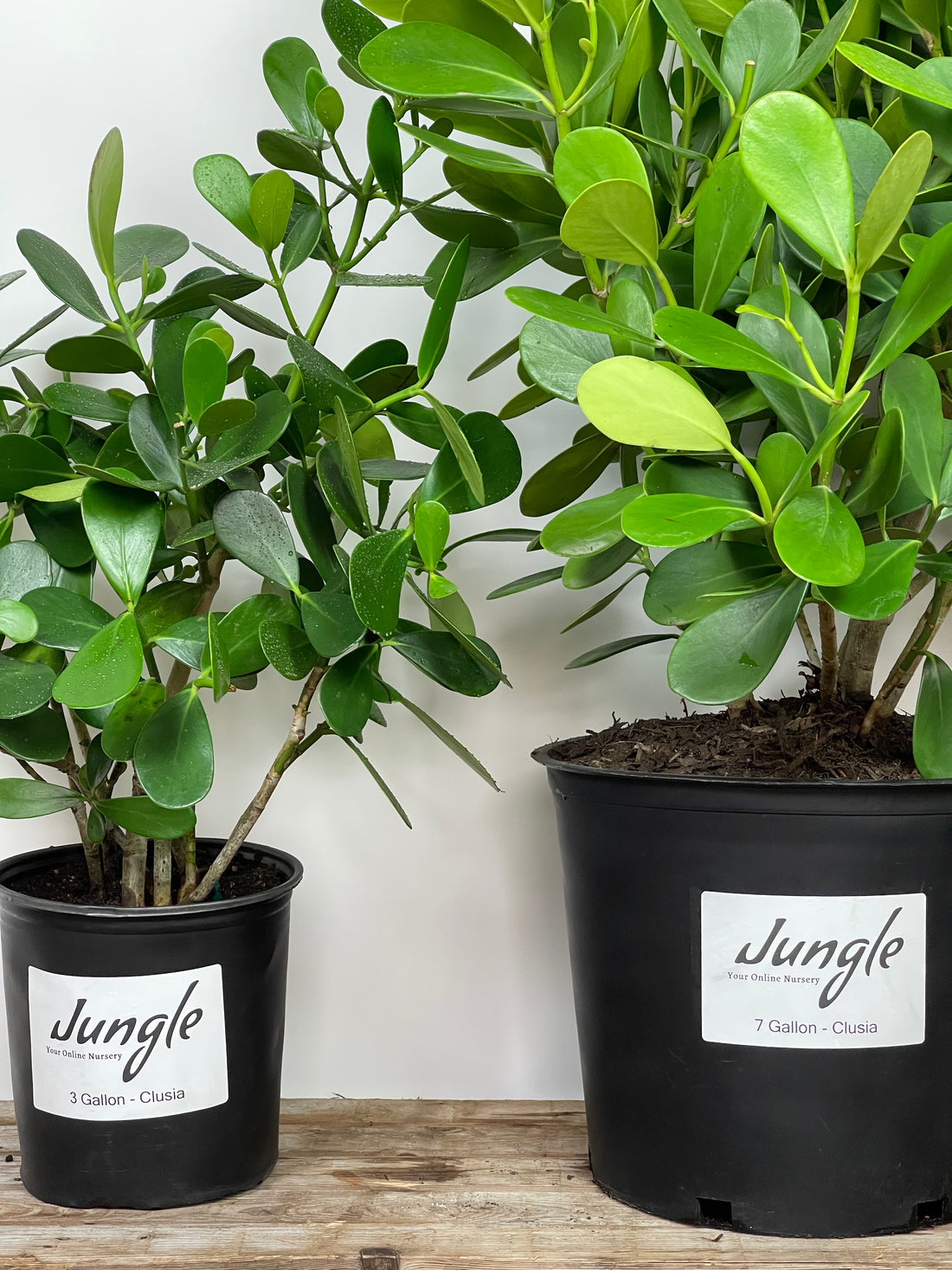
Why homeowners in South Florida are choosing Clusia over Ficus for their privacy hedges
Share
Why Clusia? Clusia is a popular hedge shrub because of it's dense foliage that's made up of large dark and light green, teardrop-shaped leaves. Clusias are resistant to drought and hot sun making them an ideal privacy screen in the south florida climate! The low maintenance nature makes this plant perfect for those who want their space but don't have time on hand as well. It grows quickly too so you'll be able soon enough have your own personal private escape from life without much effort at all.
The large Clusia family of plants is native to both tropical and sub-tropical regions worldwide. The most popular for hedging type in this species are those with dark glossy leaves, such as 'Clusia Rosea'. These durable yet flexible branches make them perfect candidate if you're looking forward growing something that can last through rain or shine while being the best hedge for privacy in South Florida.
Ficus Benjamina has a problem that's hurting both humans and our enviroment. The pest Whitefly is causing an issue because of all the chemicals thats needed to spray them every day to try and control it, but these pests aren't really dead once treated, once treated at your home they will then jump to your neighbors ficus, then when your neighbors treat their Ficus they will jump back to your Ficus and its a terrible on going cycle of treating these pests. Keep In mind while this is going on the whitefly is adapting to the chemicals spray meaning have to use stronger chemicals and done more often. Whitefly unfortunately will always continue being problems with this and reason why some counts and towns are requiring residents to replace their Ficus Benjamin all together.
Now Clusia is not the only Anwser for replacement and you can use Areca Palms, Green or Silver Buttonwood, Cocoplum which is a Florida native and much more that is listed on our site Jungleplants.com
